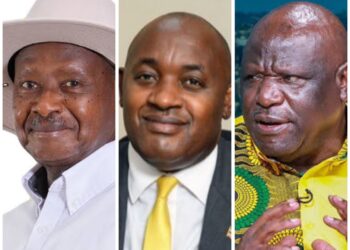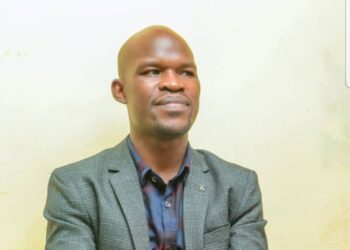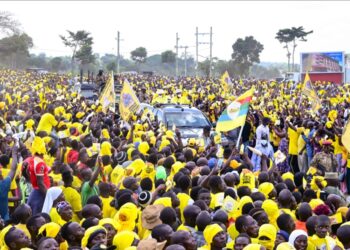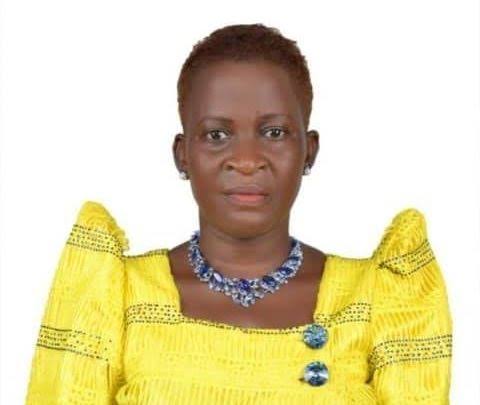An Open Letter to Uganda’s Political Opposition Leaders
Dear Muntu, Bobi, Mao and Besigye,
A *THE IMPERATIVE FOR A UNITED POLITICAL FORCE*
1. Greetings from across the border! This open letter to you is a recognition of your individual commitments to change in Uganda, but more importantly your collective strength as a team. I certainly acknowledge the importance of many other individuals, some of them within your various political formations and hundreds of others operating outside organized political parties – in civil society, professional associations, in business and various citizen movements.
2. My choice to address this letter to you is not to look down upon other change-seeking forces but to acknowledge the important role and responsibility you individually and collectively hold for the prospects of a formidable platform for **leadership change and political transition**. In short, you can make or break efforts to build a coalition if you do not put aside your egos and logos.
3. It goes without saying that a united and principled election coalition is needed to increase the chances of defeating the ruling NRM regime with all the attendant advantages, most of them illicit and keep the incumbent in power. This coalition should ideally be supported by political parties but if this is not possible, a pragmatic alternative arrangement that pulls all change seeking forces from our society is necessary. Your personal commitment and visible cooperation at this juncture is critical.
B ** HISTORY OF ELECTION COALITIONS IN UGANDA **
4. Attempts at building elections coalitions in Uganda date back several decades and their performance has varied depending on what one considers as parameters for success. Looked purely from an angle of capturing power, one can recall the success of the UPC-KY alliance in 1961/62, the interparty coalition (IPC) of 1996, that was unable to defeat Museveni, the 2001 Reform Agenda Platform that attracted bipartisan support at a time when Political Parties were not allowed to operate, the 2006 backing of Besigye by others, and most recently two different coalitions in 2016 – one led by Besigye of FDC and the other by Amama Mbabazi of Go Forward after the inability of different political forces to agree to a joint agenda and leadership under The Democratic Alliance (TDA).
5. There have been numerous critiques of election coalitions in Uganda, including inter-alia, that they have failed to raise overwhelming numbers to deny the Museveni regime outright victory, that the egos of key leaders in the opposition to Mr. Museveni has continued to cloud the collective agenda, and finally that these leaders failed to articulate a clear message to the public that could enable voters to see what alternative they offered to a supposedly failing Museveni regime. In fact, I would add that a major flaw in the change seeking forces and the political opposition is the failure to acknowledge and plan to counter Museveni’s strengths (legitimate and illicit), preferring to unduly focus on messaging and tactics around his perceived/real failures.
6. One could also argue that there has never been any serious or well-thought through election coalition in Uganda between those seeking to unseat the incumbent and all we have experienced are short term ‘marriages of convenience’ that crack at the slightest provocation or infiltration.
7. Despite the strategic and tactical flaws in election coalitions in Uganda, it is difficult to imagine any chance change seeking forces stand without uniting behind a principled coalition anchored around a well thought-through alternative policy and political agenda, a credible process of nurturing such a coalition and a structure to deliver it. In short, a principled election coalition must be built around a *simple content*, *a credible process*, and an *organized structure*.
C **CONTENT**
8. This is a starting point and must be informed by both the **WHY** as well as the **WHAT**. The **WHY** is an acknowledgement of the fact that its only in unity that you can inspire the electorate and not just raise emotions, and stand a chance of defeating Museveni with all his illicit advantages including a compromised Electoral Commission. The **WHAT** must be a policy and program agenda to market to voters – below is an outline of 12 areas you could work around to develop a manifesto and simple messages without the technical detail that majority of voters have no time for in an elections season.
9. First is to ensure peace and security in the country as a basic requirement for human enterprise and life. Connected to this is of course contributing to regional peace and security as Uganda’s stability is connected to the progress on the same, in a volatile region.
10. Second, is a commitment to reverse the dramatic destruction of our environment, sometimes in the name of development. We must restore the balance of mother earth to preserve humanity in our country and globally. This will entail reclaiming destroyed ecosystems and stopping projects around the country that will worsen it, a greening agenda and investment in renewable energy.
11. Third, must be a commitment to dramatically increase the national budget available for domestic spending to agriculture and the entire value chain from research, production, processing, and marketing. This is critical for both employment as well as a foundation for manufacturing.
12.Fourth is to invest in agro-processing and manufacturing to create jobs but also build Uganda’s comparative and competitive advantage in the region and internationally.
13. Fifth is investment in health with priority accorded to Primary Health Care and a strong preventive approach and curative agenda. A preventive public health approach is cheaper and will release resources to refurbish the curative infrastructure and pay health practitioners decent wages. All Ugandans above the age of 70 years must access free quality health care, while terminal illnesses such as cancer must be treated free for all who need it, including out of the country, aided by a national health insurance scheme.
14. Sixth is ensure free quality primary and secondary public education and a loan scheme for tertiary and university education. Fundamental however is the need for a complete overhaul of the current colonial and deskilled education curriculum and investment in research and technology. The education sector should be one of the priority sectors and expenditure appropriately targeted.
15. Seventh should be a commitment to rebuild a national value base on **care and dignity for all (obuntu), reward for hard work, justice, equal opportunity, time keeping, dialogue**, and above all, **Fear of God the Almighty**.
16. Eighth must be an acknowledgment of atrocities committed by the current and previous regimes and thus a commitment to a national truth and reconciliation process which is an important step for Ugandans to know the truth and comes to terms with a violent past.
17. Ninth, is investment in small-to-medium term enterprises and their protection from harmful external competition. We should only open our economy to technology and knowledge we do not have or need time to build. Even when allowed, it must be contingent upon their readiness to undertake some skills transfer so that our human resource is also built in fields like artificial intelligence, biotechnology, renewable energy, defense systems, to name a few. The so-called investors coming to run retail shops or car bonds must stop and citizens empowered to run such.
18. Tenth is investment in local and regional infrastructure and trade especially given the fact that Uganda is landlocked, yet strategically positioned as a gateway to Africa’s hinterland.
19. Eleventh is deepening self-governance by salvaging the intent of Uganda’s decentralization agenda and progressively moving towards a **federal system of governance** which will out of necessity involve amalgamating the unviable and patronage-based cottage industry of districts created under Museveni’s regime. If Ugandans need water, schools, health centers, etc, extend these services without including expensive political administrative structures.
20. Twelfth is commitment to a new pan African agenda that will fasten unity within Africa and with the rest of the world while promoting intra Africa trade and people to people cooperation. The continued exploitation of Africa’s resources by old and new imperial empires must stop.
21. The above twelve areas must be developed in full but can be easily summarized into five key messages around: a) building national values; b) a new inclusive economic order that cares for the environment and mother earth; c) a new political and governance consensus, d) human capital; and e) a Transformative Pan-African agenda in collaboration with other African countries.
D **PROCESS**
22. It is important that all cooperating constituencies and persons in a coalition agree on why they seek to capture power, and this is summarized in section C (9-20) above. It is important to get a technical team from your various formations to thresh these out into a coherent, ideologically rooted, and practical reform programme for your sign-off.
23. Then you need to agree on an objective methodology of choosing a flag-bearer devoid of personal egos and grand-standing. You all have strengths, networks and knowledge you bring but since elections are also about individual names, it is important that you commission three separate and independent surveys to understand who is likely to attract the most votes from the electorate. That person should be the flag-bearer.
24. Once this is agreed, then you all must rally behind this ‘popular and winning’ candidate and hold them accountable to what is agreed as the coalition agenda in section C. Most importantly, you need to market a team behind the flag-bearer and unleash all your strengths and networks in support.
25. Finally, on process, it is important to reach out and expand an election coalition to attract other non-partisan actors in civil society, business community, professional bodies and even the international community. A well-planned consultation with all these groups will be important.
E **STRUCTURE**
26.A formidable election coalition will have a clear division of labour premised on your unique strengths, networks and capacities and contacts in the public sector, military, private sector, ethnic groups, and international networks. This should be reflected in the team buttressing the election coalition flag-bearer. You need to build consensus on who will lead key positions of state such as defense, internal affairs, national economy, justice, and international affairs, and guard against the temptations to reproduce the same nepotistic tendencies that we now see undermining the hopes that was created by President Chawkwera in Malawi.
27. A Post-election cooperation framework is important as you should be prepared for victory, defeat or even an inconclusive outcome that may lead to bloodshed as was the case in Kenya in 2007 or require court action as was in Kenya and Malawi, or even working as a collective opposition in parliament.
F **CONCLUSION**
28. Election Coalition building is a very demanding and even frustrating venture where concessions and trade-offs have to made, including at other elective positions such as Parliament and local council levels where a similar cooperation framework may be necessary but in the end, for those genuinely interested in *leadership change, followed by political transition*, such a coalition offers an important step forward.
29. We have seen more successful election coalitions in other countries in Africa where incumbents who had clung to power and or systems/structures they built finally defeated such as in Kenya, The Gambia, Senegal, Tunisia and most recently in Malawi. With a uniquely Ugandan flavor, it is possible in our motherland.
Sincerely,
arthur.larok@gmail.com
July 2020
Do you have a story in your community or an opinion to share with us: Email us at editorial@watchdoguganda.com














